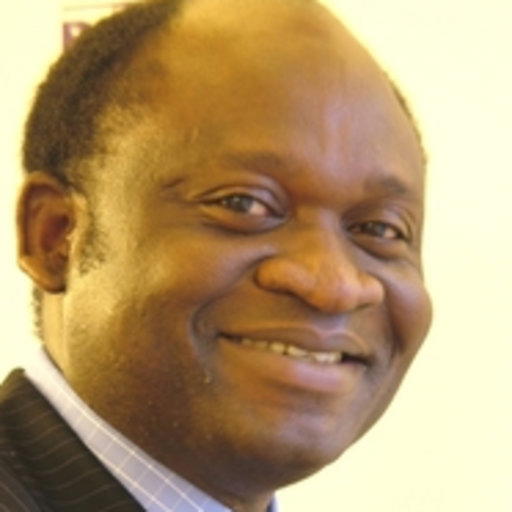
The strength and viability of any country’s democracy depend, to a very large extent, on the strength and quality of the legislative branch of its government. This is because it falls solely to the legislature to make the laws upon which a country is governed, to shape government policies, and to oversee the executive branch. Thus, as one scholar puts it, the legislature is a “driving force in government” and the “heart and soul of a democracy”.
But the nub of the matter is the fundamental principles of separation of powers and checks and balances. Under those principles, each of the three branches of government – Executive, Legislature and Judiciary – has a separate sphere of authority but also the power to check other branches. Democracy atrophies, government dysfunctions, and abuse of power prevails in any country where there are no effective separation of powers and checks and balances.
Unfortunately, Nigeria lacks effective separation of powers. Instead, there’s a fusion of powers, because the Executive branch has colonised the Legislative and Judicial branches. The National Assembly is a rubberstamp that endorses and legitimises the illegal and unconstitutional acts of the Executive, while the Judiciary overrides explicit constitutional provisions and adopts an expansive interpretation to give a ruling that the Executive wants, as the Supreme Court did in the so-called local government autonomy case, where it turned the Constitution and the principle of federalism on their heads by adopting, in its own words, “a progressive interpretation of the law.” Yet, no democracy can thrive without judicial independence and legislative independence. Sadly, neither exists in Nigeria!
But leaving aside the acute institutional failure, there are also acute moral and leadership failures. And few politicians epitomise those failures like Godswill Akpabio. Truth be told, since Akpabio became the Senate President in 2023, he has demonstrated leadership without responsibility and accountability. Through his constant indiscretions, verbal incontinence and egotistical behaviour, he has brought the office of Senate President and the institution of the Senate itself into disrepute, and has attracted the world’s negative attention to Nigeria.
To be sure, if Nigeria were a country where integrity is a criterion for political leadership, Akpabio would never be Senate President. But throughout his political career, he has acted with impunity, avoided accountability and, yet, reached top national positions because of his political usefulness to the powers that be. Consider his journey to the Senate presidency.
A former two-term governor and later Senate Minority Leader under the PDP, Akpabio self-servingly defected to the APC in August 2018. But once he joined the APC, the EFCC backed off because he had become politically useful to President Buhari, who needed his support to make in-roads into the South-South during his 2019 re-election bid. After helping Buhari to win more votes than he did in 2015 in Akwa-Ibom State and across the South-South, Akpabio was rewarded with a ministerial position, as Minister of Niger Delta Affairs. But he was a controversial minister, whose tenure was dogged by allegations of corruption, including a summon by a committee of the House of Representatives over alleged mismanagement of N40bn fund from the Niger Delta Development Commission, NDDC.
In May 2022, Akpabio contested the APC presidential primaries. Because the electoral law prevented him from running for two elections concurrently, Akpabio did not contest the senatorial primary in his state. That primary, conducted on May 27 and monitored by INEC, was won by Udom Ekpoudom. However, after Akpabio strategically withdrew for Bola Tinubu in the presidential primary, the APC’s National Working Committee conducted, in June 2022, another senatorial primary, boycotted by INEC, and announced Akpabio as its new senatorial candidate. Although, under the electoral law, no primary election is valid unless INEC monitors it, the Supreme Court ruled in January 2023 that Akpabio was APC’s senatorial candidate, arguing that “the issue of candidate nomination lies squarely with political parties”, thereby effectively destroying internal democracy, and entrenching godfatherism, in Nigerian political parties. It was one of the politically-motivated rulings that have given the apex court a bad name internationally.
But Akpabio continued to defy the law of political gravity. In April 2023, the EFCC reopened its file on Akpabio and invited him for questioning. But his lawyer said he was “suffering from pneumonia and cardiac arrhythmia” and needed medical treatment abroad. But once Tinubu indicated he wanted Akpabio as Senate President, the EFCC backed off again. For Tinubu, Akpabio is politically useful now and ahead of his re-election bid in 2027. Thus, political usefulness helped Akpabio again!
The foregoing is the context in which Akpabio, undeservingly, became Senate President. And, truth is, he has made a hash of the job. Take Tinubu’s state of emergency proclamation. A lot has been written about how the National Assembly rushed to ratify it with a voice vote. But it’s worth hearing the Economist magazine: “The decisive vote in the Senate was taken by voice, leaving the judgment of whether a majority had been reached to the Senate President, another close ally of Mr Tinubu.” So, Akpabio put his self-serving relationship with Tinubu above adherence to due constitutional process; it’s a monumental abuse of power.
Interestingly, Akpabio used the same voice vote to decide the longevity of the perverse suspension of Senator Natasha Akpoti-Uduaghan. Even though the “nay” voices drowned the “aye” voices three times, Akpabio ruled that “as the landlord of the Senate, the ayes have it.” How utterly despotic!
Of course, at the heart of the saga was Akpoti-Uduaghan’s accusations of sexual harassment. She said Akpabio told her: “You can enjoy a lot of benefits if you make me happy.” Akpabio denied the allegations. But key questions arise: Why was Akpoti-Uduaghan denied the right to speak in the Senate for several months and later assigned to a remote corner of the Senate chamber? Is it not Akpabio’s duty to make sure every senator is heard and can represent their constituency well? And how can he justify her suspension for six months? Understandably, the international media seized on the saga. The Economist wrote: “Nigerian politics is a nasty place for women: A sexual harassment scandal in parliament shows why.” The New York Times says: “Female senator faces down a ‘classic abuse of power’ in Nigeria.”
In 2016, the then Speaker of the US House of Representatives, Joe Boehner, resigned his position not because of sexual allegations but because his leadership had become divisive. He said: “When you are the Speaker of the House, your Number 1 responsibility is to the institution”, adding that he resigned to “protect the institution of Congress.” Of course, Akpabio is too self-consumed to care about protecting the institution of the Senate. Instead, he’s done enormous damage to its integrity, diminishing Nigeria as a result. Tragic!
The post Nigeria is diminished with Akpabio as Senate President, by Olu Fasan appeared first on Vanguard News.








